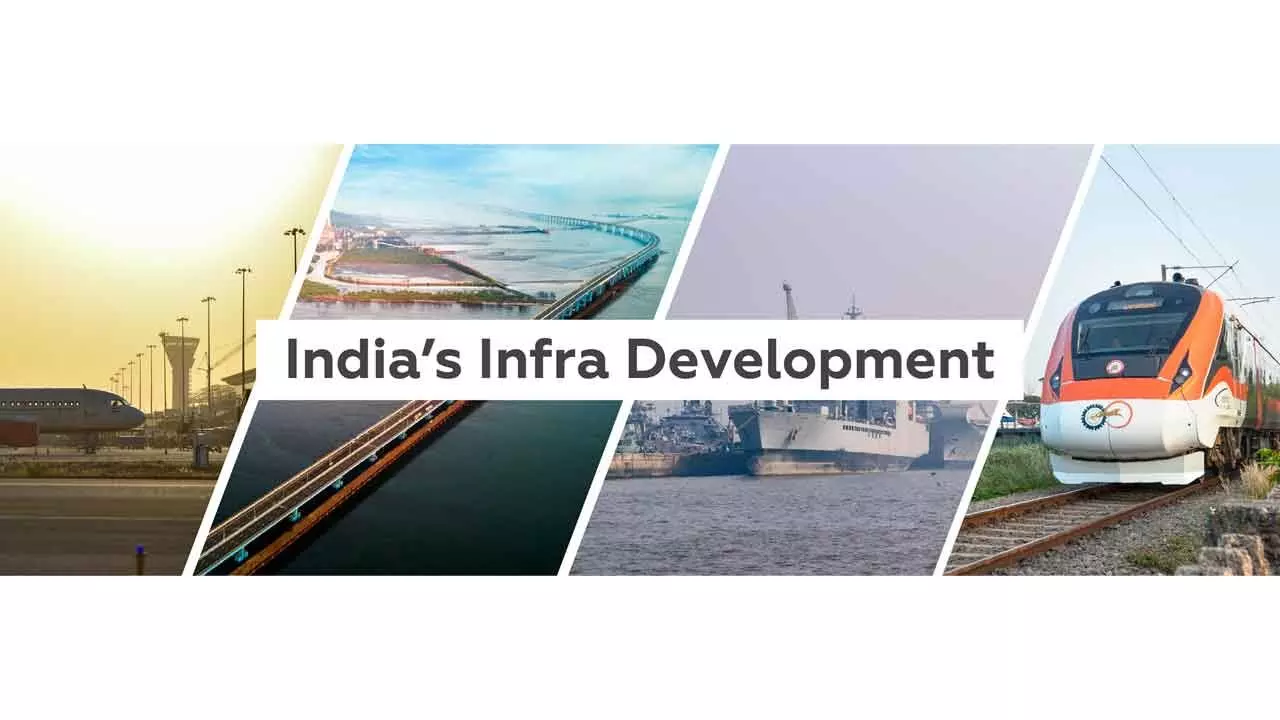Need To Prioritise Infra Push And Shedding Misplaced Priorities
Need To Prioritise Infra Push And Shedding Misplaced Priorities

Infrastructure development is a critical driver of any country’s economic growth. The Union Government has been making significant progress in building roads, railways, ports and airports, with the thrust being on interconnectivity. Reducing logistical inefficiencies alone could contribute an additional one to 1.5 per cent to GDP growth. With improved infrastructure, and a continued focus on formalisation and digitisation, economic activity will spread beyond major cities, and thereby reduce the strain on urban centres. By fostering industrial corridors and decentralised development, India can create employment opportunities closer to rural and semi-urban areas. While tax breaks have been highlighted as a major relief, they only benefit about two per cent of the taxpayers. The vast majority—nearly 90 per cent of people earning less than Rs25,000 per month see no real relief. Instead of reducing direct taxes on corporations, the government continues to rely on indirect taxes like GST, which disproportionately impact the poor. Pension remains stagnant at Rs. 200 per month for the elderly and Rs. 300 per month for widows and persons with disabilities since 2007 and 2012, respectively. MGNREGA funding has remained stagnant at Rs86,000 crore despite rising demand.
Food subsidies have been cut amid soaring prices, further neglecting rural welfare and increasing economic distress. Though the government claims that unemployment is down to 3.2 per cent, this figure masks a deeper crisis. Stable, salaried jobs are scarce and self-employment is often out of necessity rather than choice. Women’s participation in formal jobs is declining, pushing many into informal and unpaid labor. Corporate profits have surged to a 15-year high, yet job growth remains sluggish at just 1.5 per cent. Meanwhile, Rs16.5 lakh crore in bad loans has been written off for them, while MSMEs and farmers hardly have access to credit amid rising debt burdens. This budget seems to prioritise corporate interests and political calculations over the welfare of the people. Rather than focusing on strengthening social security, expanding employment opportunities, and tackling climate resilience, the government has chosen policies that deepen economic disparities, leaving millions to struggle with rising living costs and mounting uncertainty. The 2025 budget is yet another example of missed opportunities and misplaced priorities.
The FY 2026 Budget is an opportunity to boost infrastructure, energy transition and technological innovation. One needs uninterrupted capital investment in water supply, metro systems and climate-resilient infrastructure, along with support for smart cities, transit-oriented development, and affordable housing. A stronger push for renewable energy, including offshore wind, green hydrogen, and small modular reactors (SMRs), coupled with grid expansion, viability gap funding, and single-window approvals, will accelerate the energy transition. Strengthening nuclear energy through Bharat small reactors (BSR) and a contingency reserve for disaster management will bolster long-term energy security. Modernising ports, promoting shipbuilding, and developing industrial clusters for semiconductors, EV batteries and clean technologies will boost self-reliance and export competitiveness. Coastal industrialisation and inland logistics hubs will further drive efficiency and reduce costs. Smart infrastructure, digital twins, AI-driven mining, and integrated water management will be crucial for sustainability. Skill development, gender diversity in engineering, and incentives for public-private partnerships can bridge workforce gaps. Enhanced climate finance, R&D funding for energy storage, and low-interest loans for critical projects, will support India’s journey towards decarbonisation, innovation, and global leadership in engineering and consultancy.

